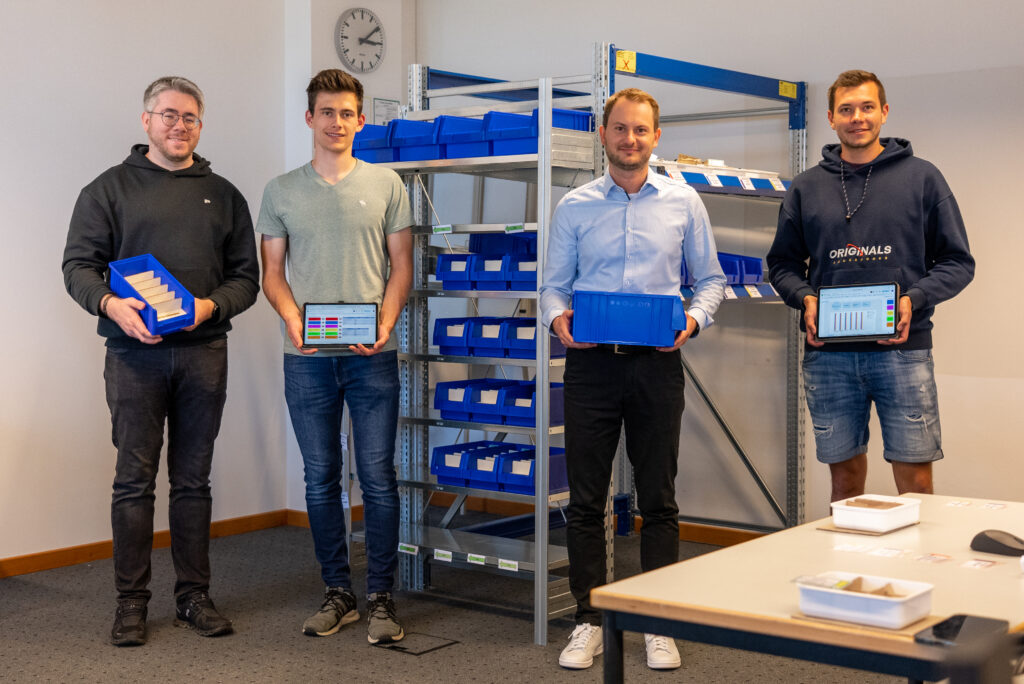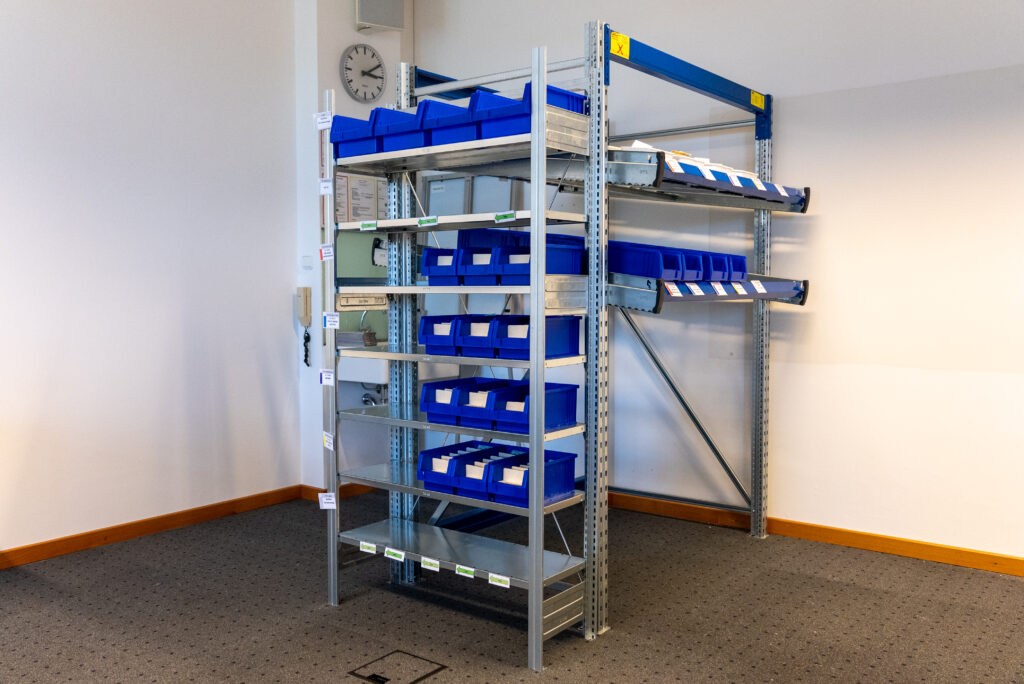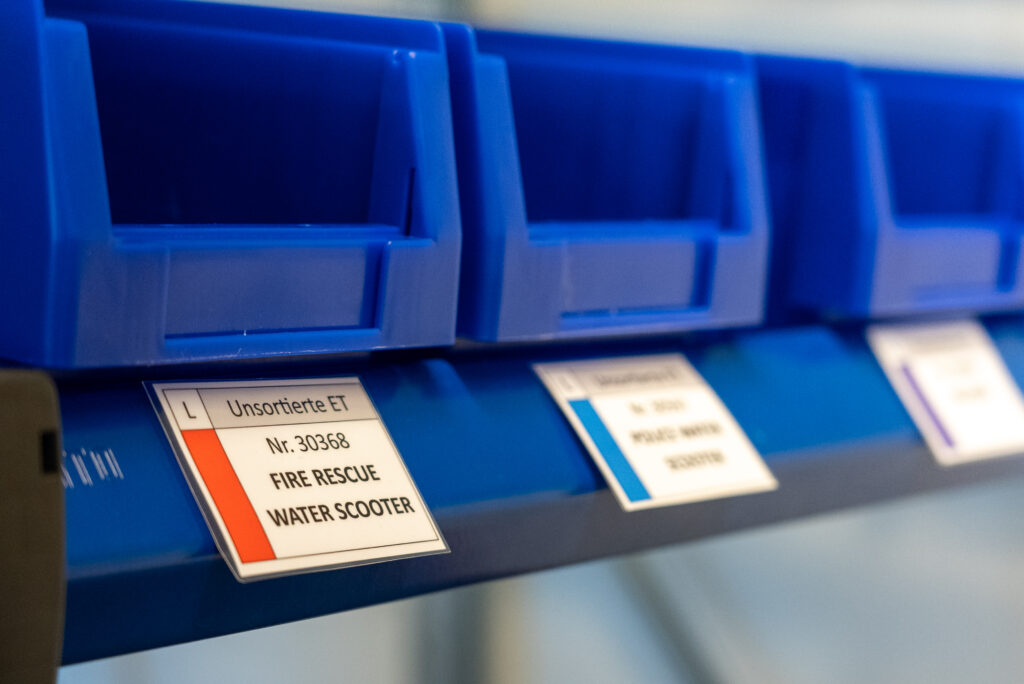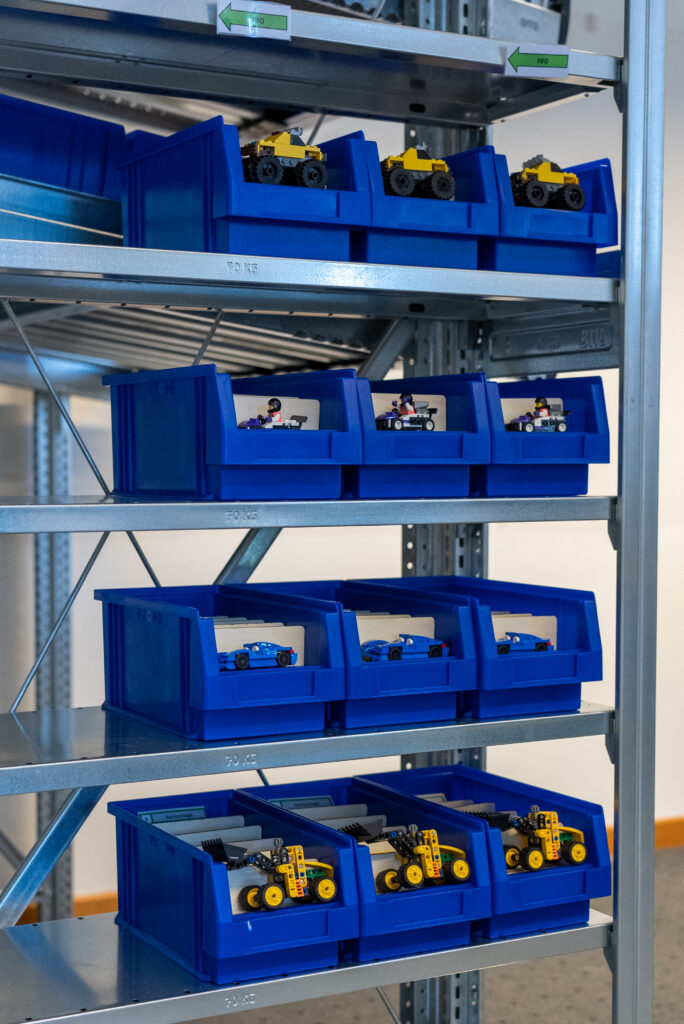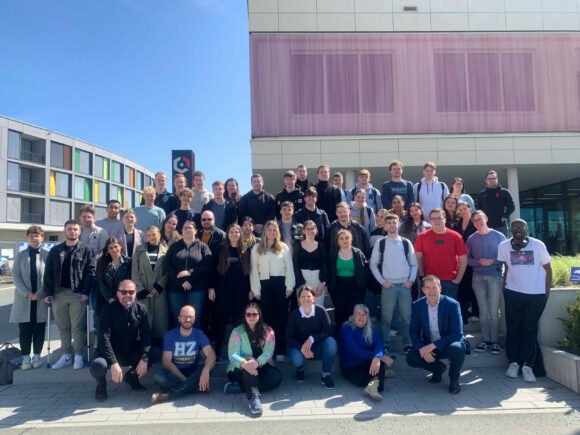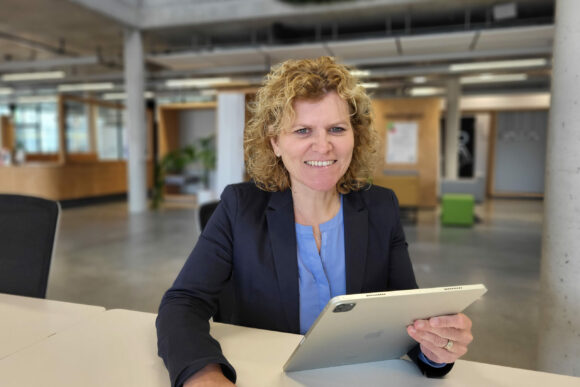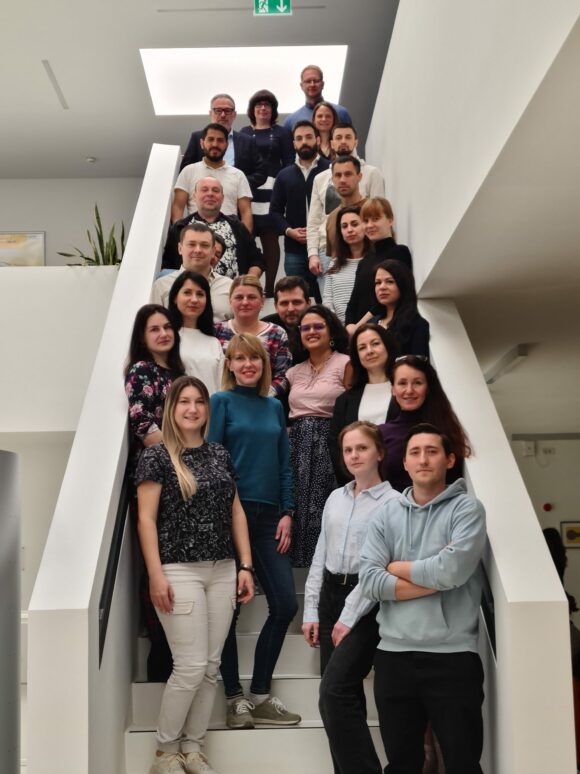Just in time for the “Night of the Sciences” on June 23, 2023, Hof University of Applied Sciences will provide exclusive insights into the new Digital Production Learning Center of the Faculty of Engineering and invites you to join in! Already from the coming winter semester, this will be available to students and companies in the region as an innovative learning environment. It will be used for the practical application of knowledge – for example in the areas of logistics & supply chain management, digitalization & industry 4.0 or in the field of production optimization.
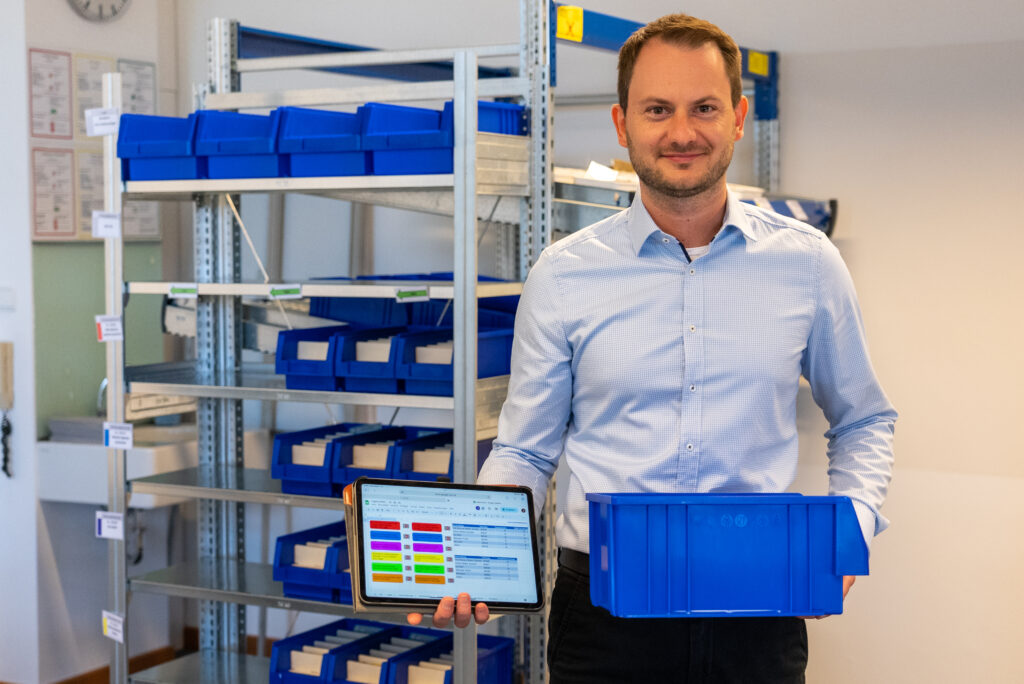
As early as the 1990s, the American Prof. Dr. Charles R. Standridge, head of the Department of Manufacturing Engineering at the Massachusetts Institute of Technology (MIT), developed the concept of the learning factory.
Applying theoretical knowledge in practice
The aim of the innovative learning environment is for students and employees of modern companies to be able to practically apply and expand their theoretical knowledge and the knowledge they have gained from lectures or advanced training courses – e.g. on the subject of production, logistics or digitalization. “Generally speaking, it can be said that the learning factory is not only an important component of modern engineering education but also an effective tool for professional development,” says Prof. Dr.-Ing. Paul Molenda, who is responsible for implementing the learning factory at Hof University of Applied Sciences.
Physical production processes – digitally recorded
In concrete terms, the new learning factory is a physical laboratory environment (Room A007) at Hof University of Applied Sciences in which a production cycle – from pre-sorting, through pre-assembly, final assembly and disassembly – is mapped. A storage system is also found on site. The production processes are physically run through in it, but are also mapped digitally. “Roughly speaking, the process is like this: one of several possible scenarios of a production is selected. There is then a ready-made learning concept for this, which includes, among other things, learning objectives, prerequisites, roles and job descriptions for the individual production workplaces. It also defines special tasks for the students that have to be completed,” explains Prof. Dr.-Ing. Molenda. The learning factory was set up together with Prof. Dr.-Ing. Ina Löbus and master’s students from the “International Project Management” course.
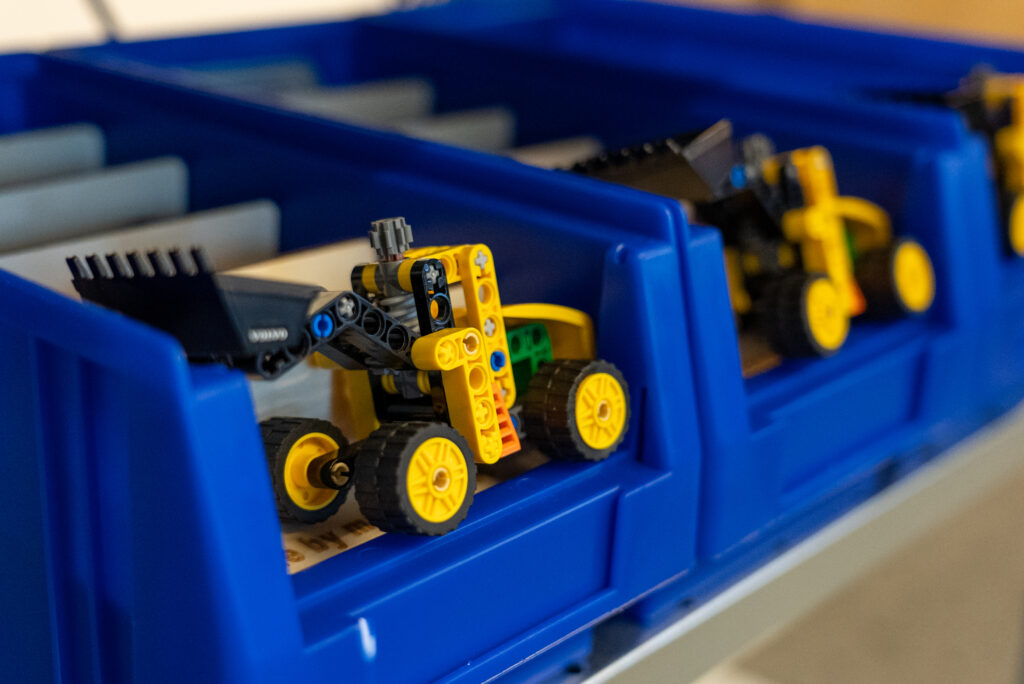
Image: Hof University of Applied Sciences;
Many universities and institutes around the world have set up learning factories – and in Germany, too, the numbers have been rising steadily over the past ten years. With the “Digital Production Learning Center Hof”, Hof University of Applied Sciences is now also one of the sponsors of such a learning environment and proves once again: applied research and teaching mean constant further development and adaptation to changes in the industrial environment.
Students and companies benefit equally
Innovative learning environments are important to meet the demands of modern business. Industrial production has changed dramatically in recent years and increasingly requires highly skilled professionals with practical skills and experience in new technologies and production processes. Learning factories and other innovative learning environments are thus an important contribution to the education and training of engineers and other skilled workers.Overall, learning factories offer numerous benefits for students and companies: Students can develop their skills and knowledge in a realistic environment, preparing them for the demands of the working world. In addition, a learning factory allows them to experience complex production processes first-hand and learn how to work efficiently and effectively. “Companies can also train their employees and give them the skills they need to plan and implement complex production processes,” says Prof. Dr.-Ing. Paul Molenda. This can help improve employees’ know-how and skills and increase the company’s competitiveness, he added.
Fancy a learning factory?
Hof University of Applied Sciences cordially invites you to take a first look and try out the Digital Production Learning Center Hof on June 23, 2023 for the Night of Science.
Do you want to use the Digital Production Learning Center at Hof University of Applied Sciences for training purposes starting in 2024? Then contact us! Please contact Prof. Dr.-Ing. Paul Molenda at Email: produktionslernzentrum@hof-university.de.
